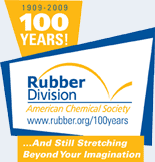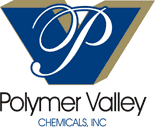![[ Visit ACS Rubber Website ]](images/logo.jpg) |
|
Centennial Elite SponsorsBecome a Centennial Elite Sponsor |
65 PAPER CANCELLED: Maleic anhydride grafting of Natural Rubber by Gama- radiation and its use in preparing Natural Rubber /clay nanocompositesWednesday, October 14, 2009: 9:00 AM
330 (David L. Lawrence Convention Center )
Maleic anhydride grafting of Natural Rubber by γ- radiation and its use in preparing Natural Rubber /clay nanocomposites
Vijayalekshmi V1, George K.E1, Pavithran C2 1Department of PS&RT , CUSAT ,Kochi 682022 2Materials and Minerals Division, National Institute of Interdisciplinary Science & Technology (CSIR), Thiruvananthapuram, India 695 019 Abstract Natural rubber (NR) was modified by grafting with maleic anhydride (MA) using γ- radiation for preparing nanocomposites with organoclay . The effect of radiation dosage (0.5-10 kGy) and MA concentration on the grafting efficiency and the mechanical properties of the composites was studied.. MA grafting was found to improve the tensile properties of the vulcanizates even with out clay loading. Grafting was found to be most efficient at a dosage of 2.5 kGy. The MA content in MA-g-NR increased from 0.7% to 9.1% on increasing the MA concentration from 1 to 10% of NR in the reaction mixture. Where as high MA content retarded the curing the mechanical properties of the composites increased with MA content up to 4.2%. At this MA concentration MA-g-NR/clay composites showed 20% higher tensile strength than pristine NR/clay nanocomposites. The grafting efficiency was determined by titration and FTIR spectroscopy .. MA grafting also improved exfoliation and dispersion of nanoclay platelets as observed from the XRD and TEM . The crosslink density of the composites was determined by equilibrium swelling . The study shows that maleic anhydride grafted NR prepared through γ-radiation is more suitable for the preparation of NR/clay nanocomposites compared to chemical routes since the former is pollution free and is adaptable for bulk production. |









